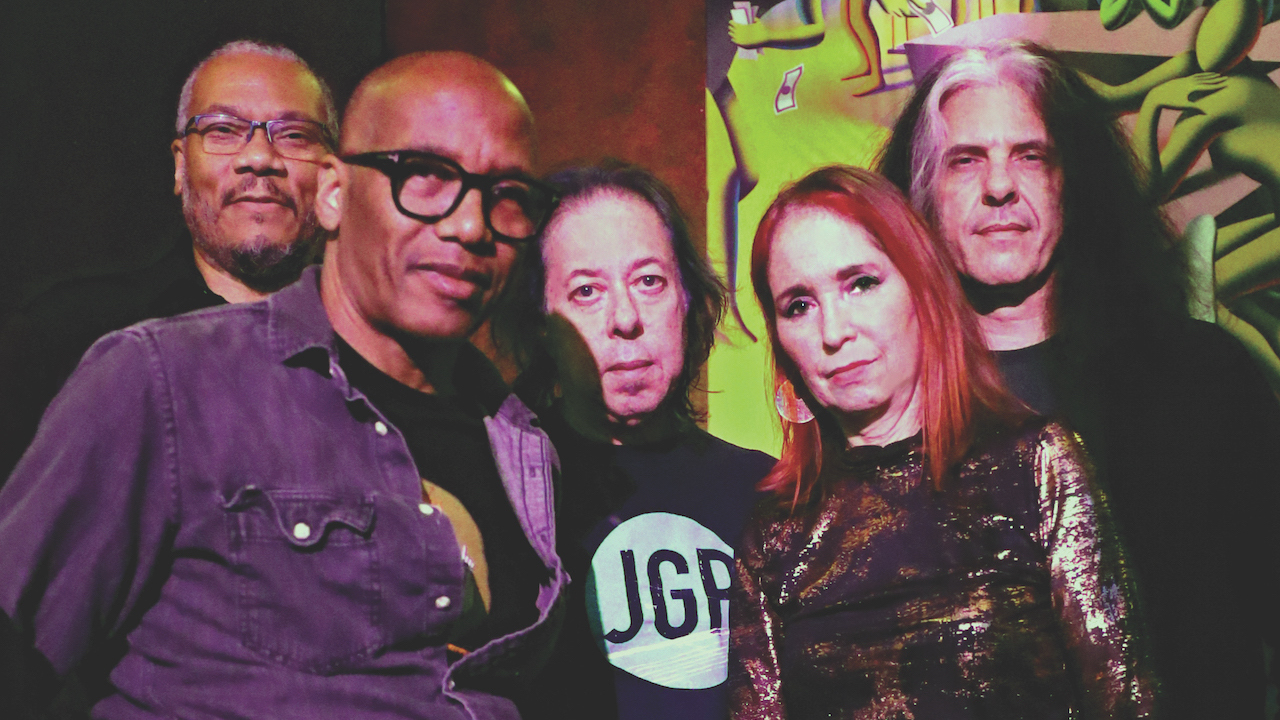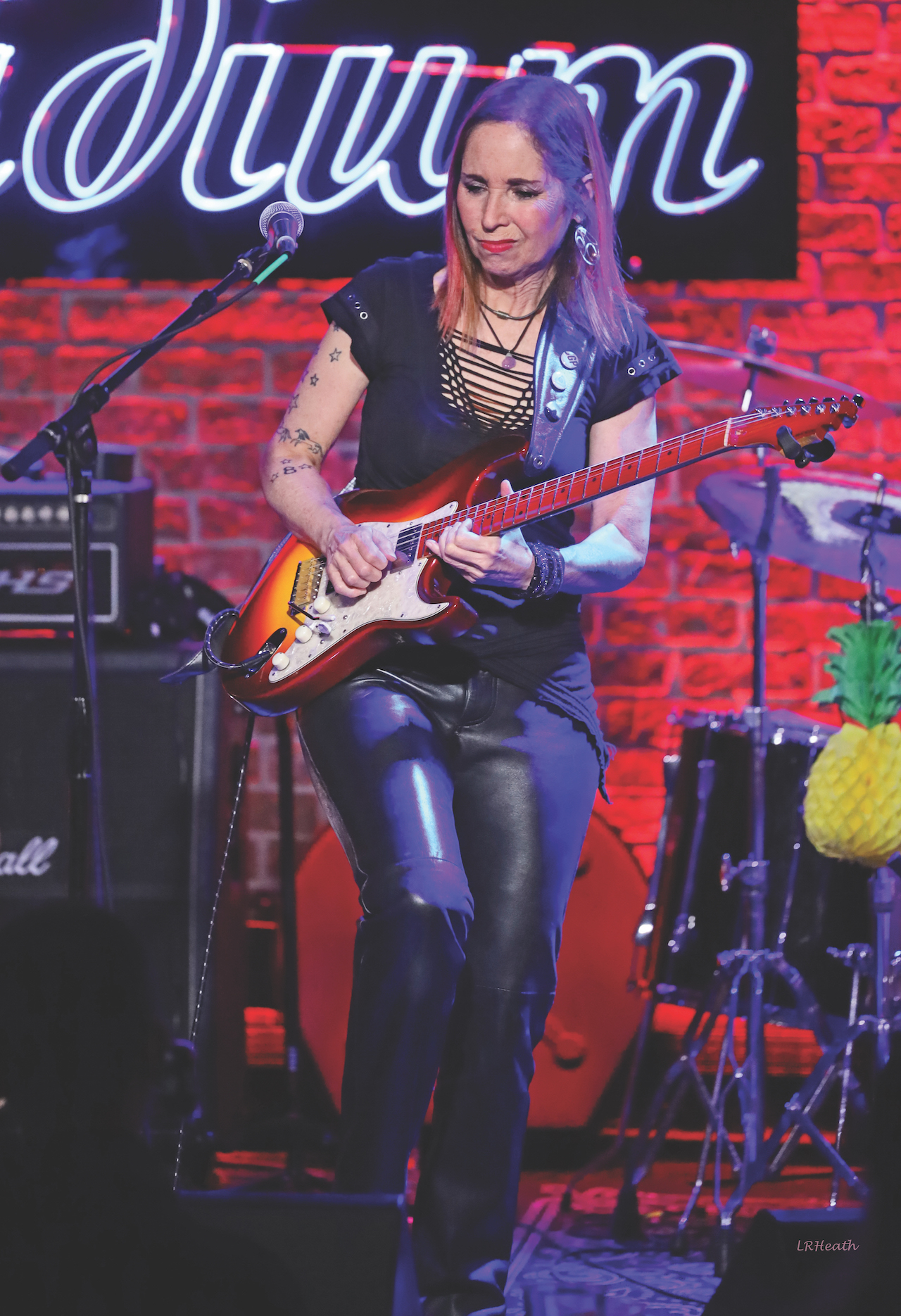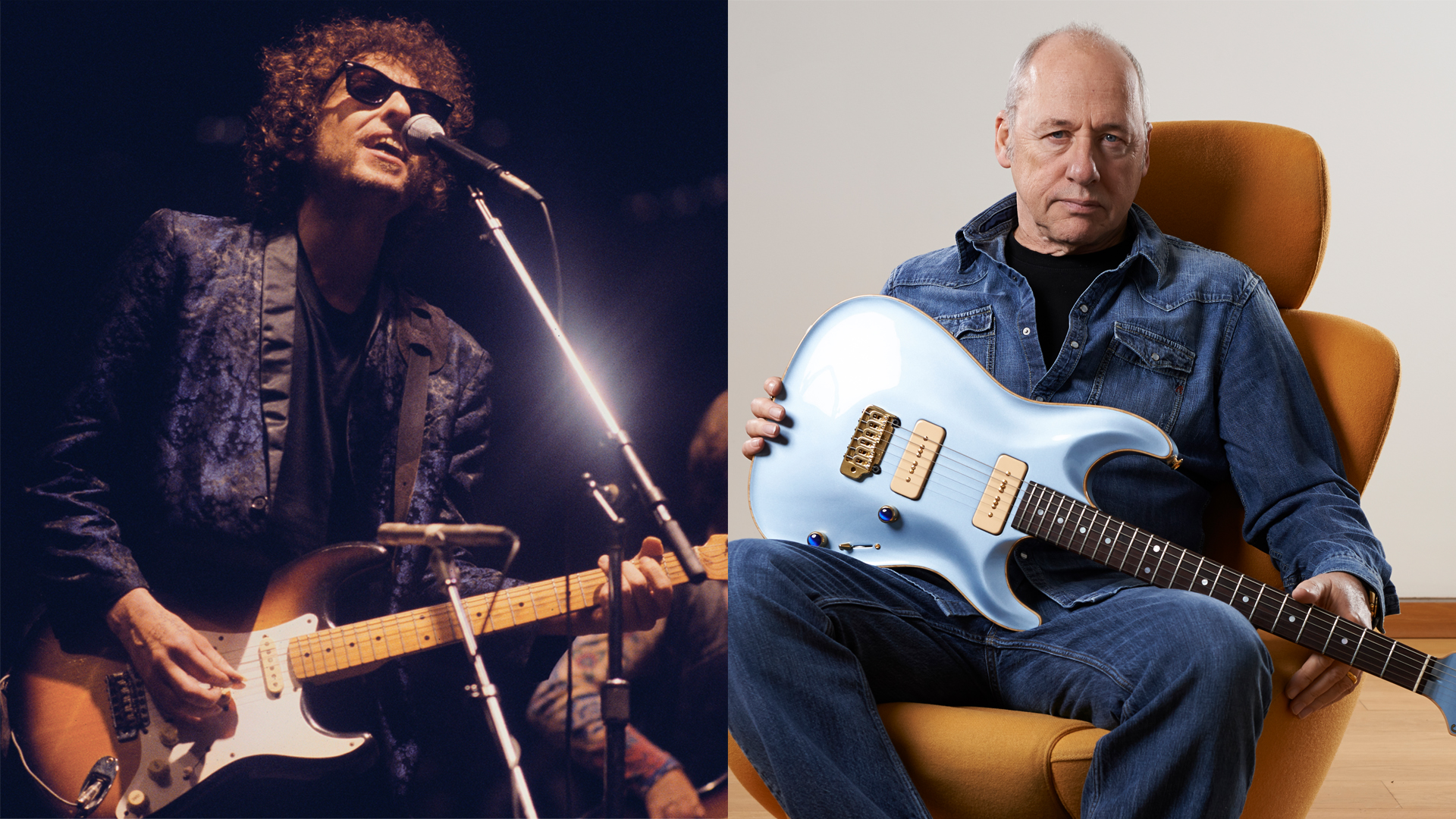“The best solos have soul, feeling and chops. Players concerned with only playing fast are missing the point...”: With heavy themes and cameos from Alex Skolnick and Vernon Reid, Jane Getter's new album features her most inspired playing to date
Channeling a multitude of influences, Getter has delivered a spunky record that transcends genre and easy categorization

In the world of Jane Getter – a player who can outright shred but hates the notion – “redundancy” is a dirty word. For Getter, there’s no fun in being a retread, nor does she care what’s worked for her in the past, only what works for her now.
The trick is that she’s guided by a muse that instinctually runs the gamut of styles. But if you were to ask Getter, she’d tell you her music is best classified as prog-rock, even though she disdains genre associations.
“My taste in music is very eclectic, so my writing and playing reflects that,” she tells Guitar Player. “My approach to combining those elements is organic. It’s what I hear, and hopefully I’ll execute it well.”
And that brings us to the Jane Getter Premonition’s Division World, an aptly titled album, as Getter wrote it amid the chaos inherent in a fractured global climate.
“A lot of the songs are about conflict,” she says of the record, which includes guest performances by guitarists Alex Skolnick and Vernon Reid, as well as former Frank Zappa drummer Chad Wackerman and her husband, Miles Davis/Steven Wilson keyboardist Adam Holzman. “The divisiveness and political narcissism in the world bother me, and songwriting is the way I express that.”
Getter refers to Division World as her “strongest album,” and considering that songs like The Spark, Compass, Division World, Devolution, and End the Blame showcase her multi-genre approach, that seems fair. Still, she refuses to say she’s found stylistic comfort, let alone a logical stopping point.
“Oh, I could never do that,” she says. “But I wouldn’t be here without what I did before. I’ll never be able to answer the question of where my style is,” she admits. “The aspects of my playing are in everything, from open voicings to the heavy distorted riffs. I’m all those things, and more.”
You started out playing piano but ended up playing guitar. How did that happen?
“I was given piano lessons as a young girl, and my sister was given guitar lessons, but I would always spy on her, wishing I was taking guitar lessons. My parents finally gave in and gave them to me. I’ve always been drawn to the guitar. It continues to be an avenue of expression for me and brings me great joy.”
What did the music scene look like when you were growing up?
“Before streaming, record companies were into supporting evolving artists as they grew, instead of dropping them if their first album bombed. Record companies have become more corporate, with CEOs coming from the corporate world rather than the music world. My father-in-law and Elektra Records founder, Jac Holzman, always said, ‘It’s all about music.’ I grew up with that in mind, but that focus has been forgotten.”
Who were your early influences?
“Before I got heavy into jazz, my influences were Bonnie Raitt, the Allman Brothers, Led Zeppelin, Crosby, Stills & Nash, and Jimi Hendrix. And then I was exposed to Return to Forever, and saw Joe Pass play solo and was blown away. I never imagined guitar could be played like that, and I said, ‘I want to do that.’ I got heavy into straight-ahead jazz and got my [Gibson] ES-175. My main jazz guitar influence was – and still is – Wes Montgomery.”
How did rock and metal enter the picture?
“I was initially – and still am – inspired by John McLaughlin and the Mahavishnu Orchestra, Return to Forever, Jeff Beck, Robben Ford, and Allan Holdsworth. But, my writing style has recently been influenced by King Crimson, Tool, Porcupine Tree, and Animals as Leaders. The earlier influences remain the foundation. Some take a back seat but will always be a part of me.”
We know you like to meld genres, but is there one that best represents you?
“If I had to pick one, I’d say progressive rock. ‘Progress’ means moving forward and not sticking to any style. So when I’m asked, I say, ‘It’s progressive rock, jazz, and metal.’ Some people have a specific idea of what prog-rock is, so I communicate that it’s more than that. I don’t like the idea of genres. I hope the music can speak for itself.”

Are you primarily using your signature Peekamoose model?
“Yes. It’s versatile, sounds great, and it’s comfortable. I also use my ’71 Tele and ’72 Martin D-28 acoustic, and an ’80s Ovation nylon-string. In addition, I have a ’61 Custom Shop Strat, a ’53 Gibson ES-175, a Yamaha AC3MR acoustic-electric, and a black Burns Marquee Pro guitar.”
And how about amps and pedals?
“My main amp is a Fuchs Audio Full House 50 with a 2x12 cabinet. I have a couple of pedalboards with a few different pedals, but my main ones are a Vox [V847] wah, a Maxon Overdrive [OD-9], a Fuchs Plush [Extreme] Cream II, a Fuchs Plush Drive, a Tone Concepts The Distillery [preamp boost], a vintage TC Electronic Chorus, a Diamond [VIB1] Vibrato, a JAM Pedals Delay Llama, a Boss Digital Delay [DD-7], and a Boss FV30H volume pedal.”
Are you on the hunt for any new gear?
“I’ve wanted a Les Paul for years, and still do. I’ve always loved the sound of Dumble amps and would love to have one. I’d also like to get a nice Taylor acoustic-electric. But I don’t mind cheap gear. I use a Squier J-Bass for my demos, which sounds quite good. Real bass players have tried it and said it’s a good bass. It depends on the instrument.”
Can you dig deeper into your style and what it looks like now?
“I’m playing better now than ever. My technique has improved, my approach is much more developed, and the execution of my ideas is more on point. Some of the harmonic and melodic ideas I’ve been working on for soloing are starting to creep into my playing organically. Years of experience and practice have brought me to where I am now, and I look forward to that continuing.”
What does your riff and solo writing process look like?
“My soloing process is to dig deep into the harmony and rhythm of a song or, depending on the song, its melody. The goal is to make a musical statement with melodic, harmonic, rhythmic and textural ideas.”
You’re often called a shredder, a label some players dislike. Does it bother you?
“Many guitarists are playing incredible solos today, but there is a movement where some are too focused on playing as fast as possible and constantly shredding. That’s not musical to me. I’m impressed by their technique, but I’d much rather listen to a solo that has soul and feeling than impressive chops.
“The best solos have a combination of soul, feeling and chops. Players concerned with only playing fast are missing the point and missing out on what music is. It’s not a sport to see who can play the fastest; it’s an art. So a bit of deconstructing can be constructive.”
- The Jane Getter Premonition's new album, Division World, is available to purchase or stream now.
Get The Pick Newsletter
All the latest guitar news, interviews, lessons, reviews, deals and more, direct to your inbox!
Andrew Daly is an iced-coffee-addicted, oddball Telecaster-playing, alfredo pasta-loving journalist from Long Island, NY, who, in addition to being a contributing writer for Guitar World, scribes for Rock Candy, Bass Player, Total Guitar, and Classic Rock History. Andrew has interviewed favorites like Ace Frehley, Johnny Marr, Vito Bratta, Bruce Kulick, Joe Perry, Brad Whitford, Rich Robinson, and Paul Stanley, while his all-time favorite (rhythm player), Keith Richards, continues to elude him.
"This 'Bohemian Rhapsody' will be hard to beat in the years to come! I'm awestruck.” Brian May makes a surprise appearance at Coachella to perform Queen's hit with Benson Boone
“We’re Liverpool boys, and they say Liverpool is the capital of Ireland.” Paul McCartney explains how the Beatles introduced harmonized guitar leads to rock and roll with one remarkable song










